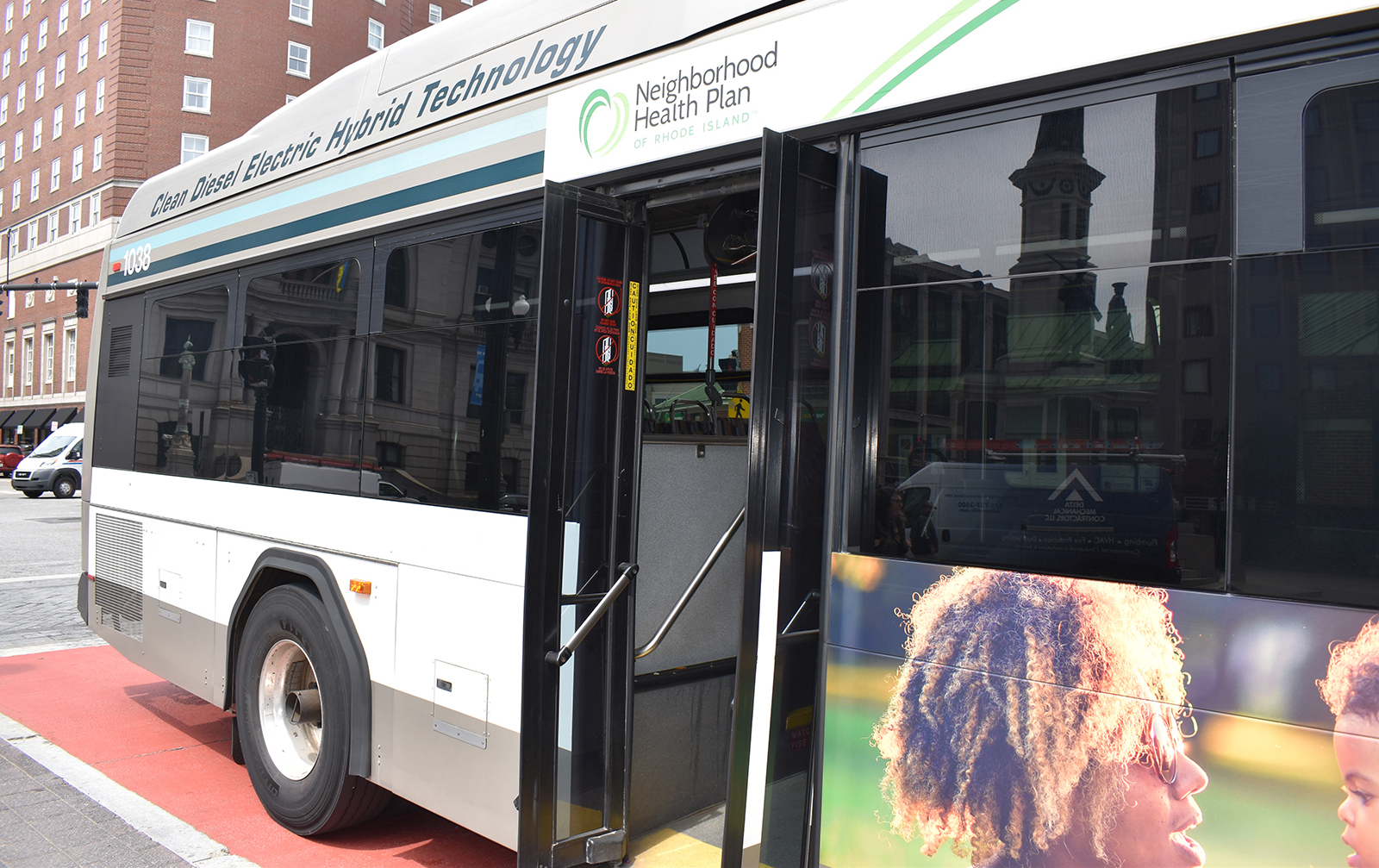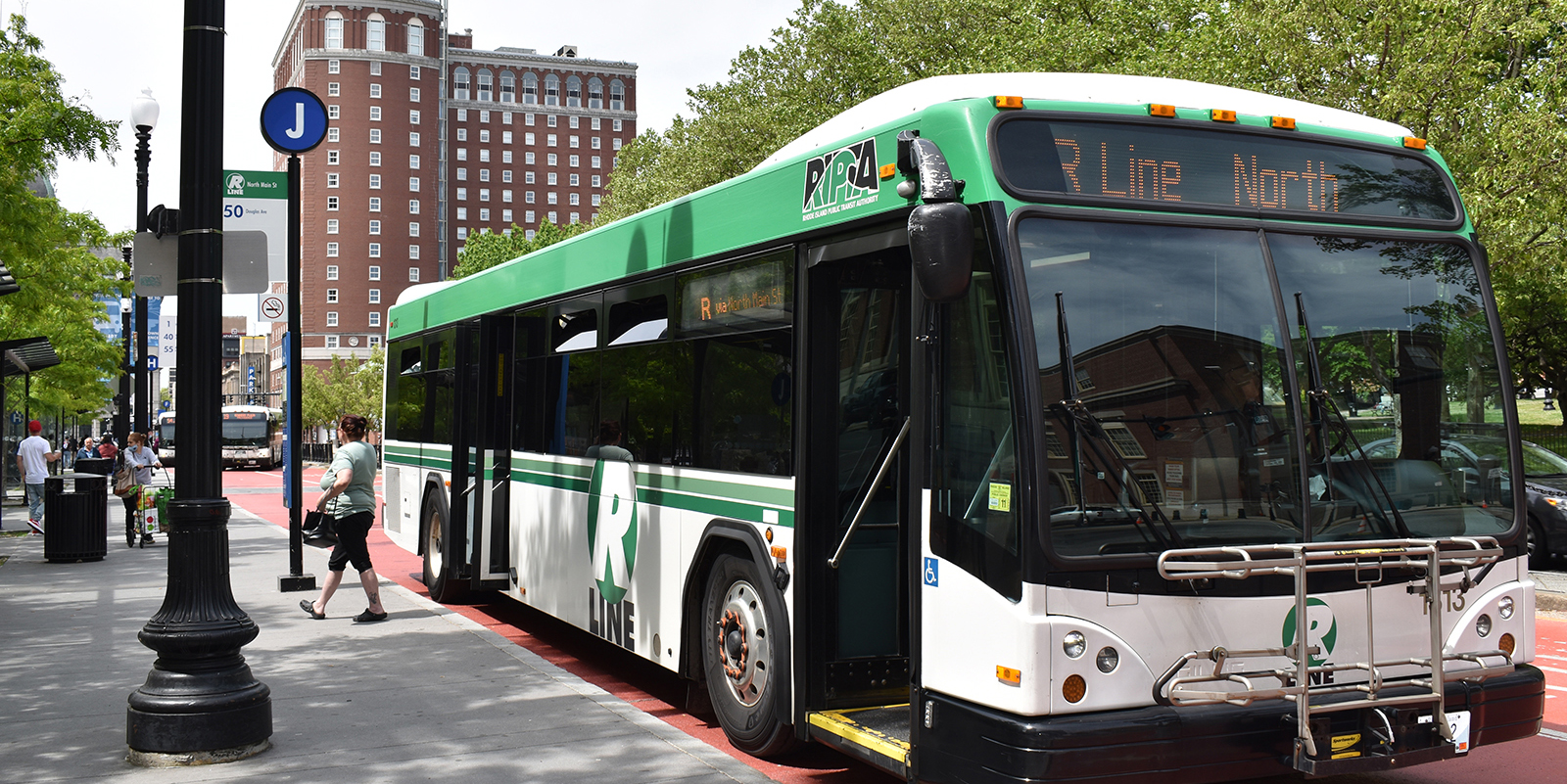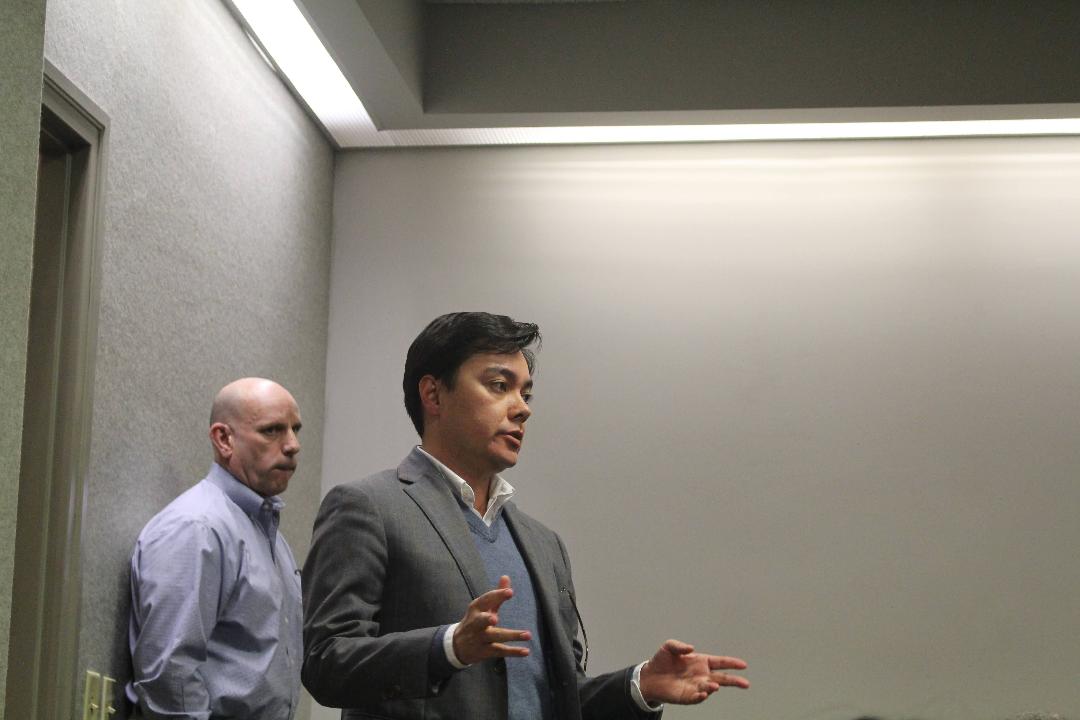Data Show RIPTA Buses Arrive on Time … Most of the Time
March 11, 2023

Buses in Rhode Island arrive on time — mostly, according to data from the state’s transit agency.
Last year, the Rhode Island Public Transit Authority’s fixed-route buses were on time for 81% of their weekday trips, according to data from the agency. They were late 13% of the time and early 6%.
Weekend figures are not far off. Fixed-route buses were on time 80% on Sundays, 79% on Saturdays, and late 13% on both days last year.
A bus that is on time is anywhere between 1 minute early and 5 minutes late, based on departure time, according to RIPTA spokesperson Cristy Raposo Perry. More than 5 minutes and the bus is recorded “late,” and more than 50 seconds early and the bus is recorded “early.”
Timeliness and early arrivals were down in 2022 from the year before. Weekday lateness increased 5%, from 8% to 13%, something Raposo Perry attributed to increased traffic and travel post-COVID.
Despite the increase in lateness and slight decrease in timeliness, RIPTA is still hitting its goals.
The American Bus Benchmarking Group, an organization of medium-sized bus agencies in North America, has an on-time performance average of 79%. “Our goal is to be above our peer average,” Raposo Perry wrote in an email to ecoRI News.
“In terms of reliability, I think [RIPTA is] probably doing really well,” Christopher Hunter, associate professor of civil and environmental engineering at University of Rhode Island, said. He explained that bus agencies try to hit between 80% and 85% on time.
“Eighty-one percent is actually pretty good for buses,” according to Kari Watkins, associate professor of civil and environmental engineering at the University of California, Davis. Watkins helped create the OneBusAway app, which tracks real-time transit data for riders and makes up the backbone of the New York City’s Metropolitan Transit Authority app.
“I think 80% is sort of like a mid-grade,” she said. “Like, you can do better than that. But there’s a lot of agencies that do even worse than that.”
Last year, 24 RIPTA lines were below the 81% on-time average on weekdays. The Walmart Connector (89), Pontiac Avenue (22), Mineral Spring/North Providence (58), and Lincoln/Woonsocket (54) lines were most frequently late.
The Walmart Connector, which travels to several senior housing communities in Cranston to Walmart on Thursdays, had the worst on-time average. It was on time about 42% and late more than half the time.
Serving an older adult population, the line has more passengers with mobility issues who need to use walkers and wheelchairs than other lines, and may need more assistance getting on and off than the population at large.
“Our drivers are very accommodating to passengers that may need more time to get to bus stops and board the bus,” Raposo Perry wrote.
The Pontiac Avenue was the next worst line on weekdays in 2022, according to RIPTA data. The line, which travels between the Community College of Rhode Island and Kennedy Plaza, was late about 34% of the time.
Raposo Perry wrote that Route 22 was more frequently late “due to a long-term construction project on the Reservoir Bridge over the Northeast Corridor.”
About 23% of the time the Mineral Spring/North Providence bus line, which takes passengers between Smithfield Crossing and the Hospital District in Providence, arrived late during the weekdays.
“Route 58 ran late mostly due to the configuration at the end of the route, which terminated at Smithfield Crossing. The route would need to layover and then recycle through the complex again prior to the inbound trip,” Raposo Perry wrote. “We’ve since changed the route, so it only circulates once through the shopping complex prior to heading inbound to Providence.”
The Lincoln Woods/Woonsocket line was late 23% on weekdays, 29% on Saturdays, and 33% on Sundays last year.
Raposo Perry said RIPTA is looking into why that was the case.
In general, buses tend to be less reliable than trains because they have to operate with other vehicles, Watkins said, making their timeliness vulnerable to congestion and construction. Getting passengers on and off buses — as seen on the Walmart Connector line — can also be a challenge to keeping on schedule.
Watkins and Hunter both said there are a lot of ways to improve overall speed, some of which RIPTA is already doing.
The timeliest lines on the weekdays in 2022 were mostly express routes. The top six lines for timeliness were Armistice Boulevard (80), Pascoag (9x), Westerly Express (95x), Scituate Express (10x), Arctic Express (12x), and Central Avenue (76), which averaged more than 90% on time on the weekdays last year.
Express lines with fewer stops prioritize speed over more thorough service, which is usually a tug-of-war in designing routes, Watkins said.
Priority bus lanes either for parts of routes or near intersections that allow queue jumping can also help speed things up. Some systems have separate roads dedicated just for transit. (An example of this in Rhode Island would be the bus tunnel that delivers RIPTA buses between North Main Street and Thayer Street on Providence’s East Side.)
RIPTA and other organizations also have some transit priority signaling, Hunter said, which allows buses to communicate with traffic signal controllers to either shorten or lengthen red and green lights so that buses can make it through intersections faster.
“There are a lot of pieces that come into play,” Hunter said, and usually lots of different designers and engineers have to be involved to make the system more streamline and get buses around more quickly.
Although it’s complicated, small changes can add up, Watkins said.
“If [a bus is] stuck in traffic … all these things that can go wrong, then you’re going to see that 80%,” she said. “But if we put those improvements in place, buses can also get to the point where they’re running at 95, 97% on time.”
(The Central Avenue line which runs between the Central Falls/Pawtucket transit hub and Providence was on time about 97% of the time during the weekday and has the best timeliness record on weekdays for fixed-route buses.)
All these measures and obstacles have a real impact on the transit riders, Amy Glidden, co-coordinator of the advocacy group RI Transit Riders, said. She agreed with Hunter and Watkins that RIPTA’s overall timing seemed on track with other systems, but also noted, “we would hope in an ideal world that we would be trying to improve that all the time.”
David, a man who is unhoused and often takes the Lincoln/Woonsocket line, said he recently had to wait at a stop at the Smithfield Walmart, which doesn’t have a bus shelter, for an hour to get food. He noted that some days on the line are better than others.
“It’s not up to us … it’s up to what we encounter,” a driver on the 54 line said through the open door of the bus after David hopped on.
The driver said that sometimes the time allotted on the schedule to get from one stop to another isn’t enough, especially if there is traffic or a passenger needs to spend a little extra time getting on with a walker or wheelchair.
“We try our best,” he said, before he closed the bus doors and tried to get to his next stop on time.
Categories
Join the Discussion
View CommentsYour support keeps our reporters on the environmental beat.
Reader support is at the core of our nonprofit news model. Together, we can keep the environment in the headlines.
We use cookies to improve your experience and deliver personalized content. View Cookie Settings



